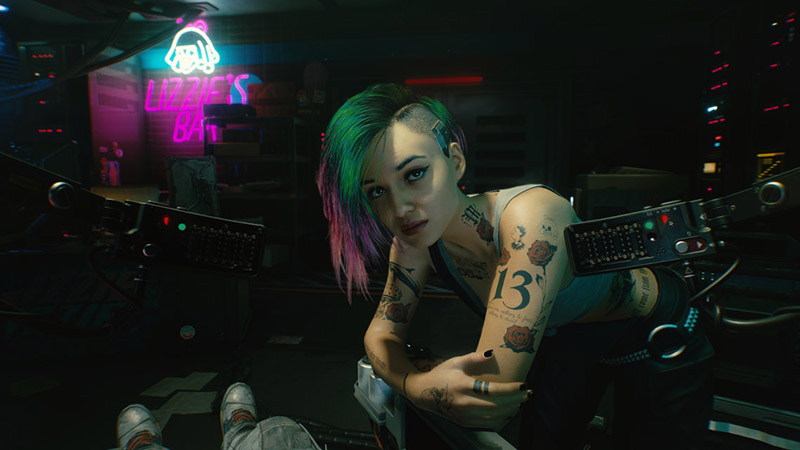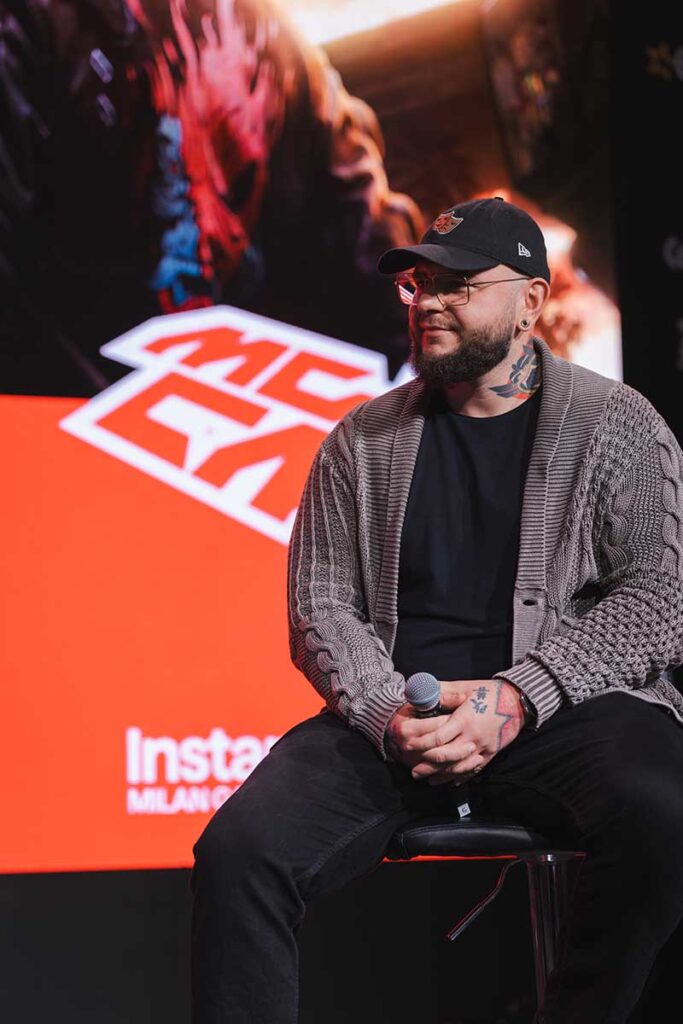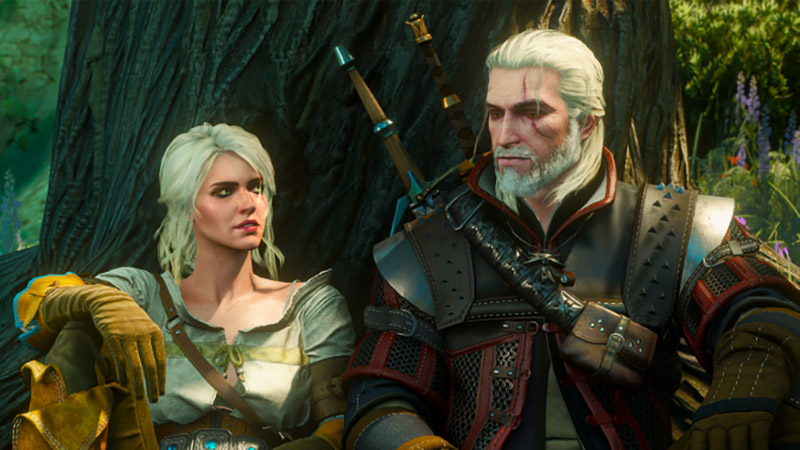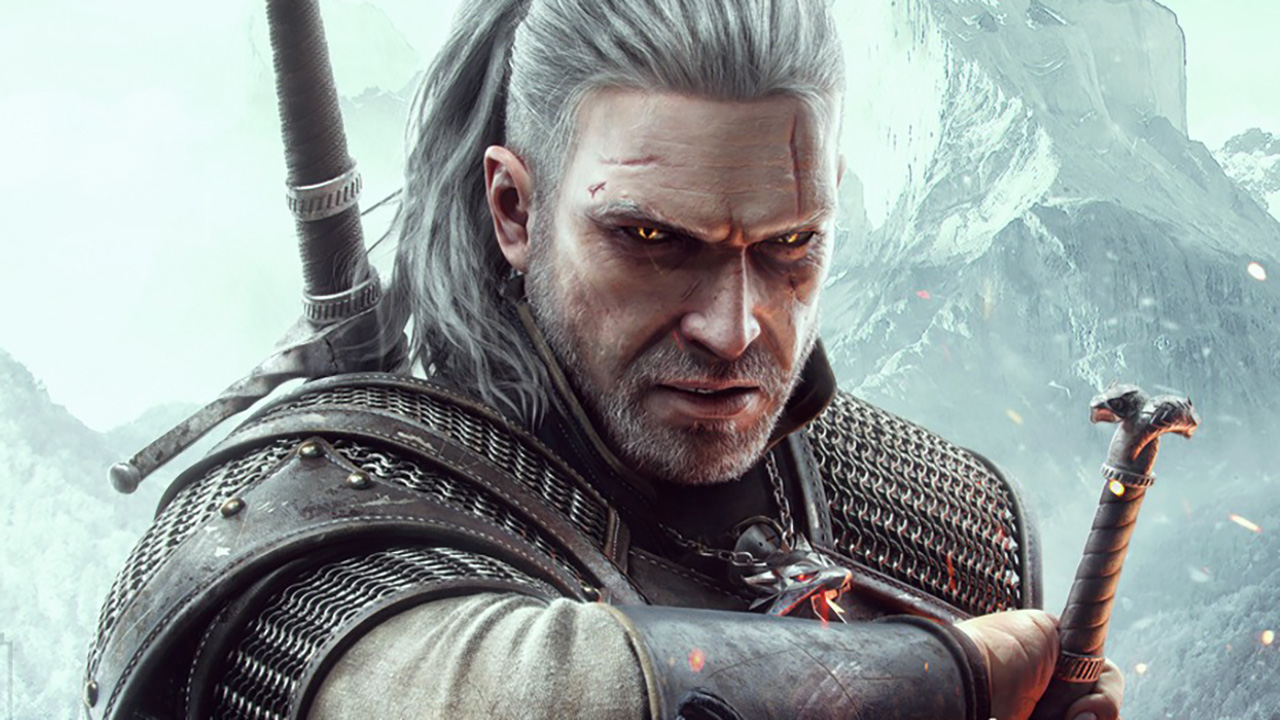There are works in the gaming field that have profoundly changed not only the industry, but pop culture as a whole and we could dare say the world. One of these is certainly the epic of Geralt in Rivia, especially its iconic third chapter. Without that success we wouldn’t have had so many cults, including the troubled but highly appreciated one Cyberpunk 2077. And now that it’s coming The Witcher 4we took the opportunity to have a chat with its Game Director Sebastian Kalemba.
Sebastian Kalemba, the Game Director of The Witcher 4 and beyond
The context is that of Milan Games Week 2023, where this artist was one of the most relevant international guests. After all, we are talking about a figure who contributed greatly to the last years of CD Projekt Red, the Polish development house that brought the witcher into the world of video games starting from the pages of Andrzej Sapkowski.
Having joined the studio precisely to work on the third chapter of the adventures of Geralt of Rivia, he then held the role of Animation Director per Cyberpunk 2077. This was one of the most anticipated titles of recent years, with very high expectations from the public.

Unfortunately though not everything went as smoothly as it should have. The launch of Cyberpunk 2077, postponed several times, was met with numerous criticisms due to a series of technical problems that had a strong impact on the players’ experience. It was a very important case on which CD Projekt Red he worked for a long time to be able to mend the relationship with his fans.
Now the situation seems to have stabilized and all eyes are turned to the future. There are several titles in progress at the studio, but one in particular is at the center of fans’ curiosity. It’s about The Witcher 4of which Sebastian Kalemba is Game Director.
“For me, working on a game is like sculpting.”
We immediately took the opportunity to speak with Sebastian Kalemba own The Witcher 4 and all other CD Projekt Red projects, during Milan Games Week 2023. We were able to take a look under the hood, as they say, reflecting on the power of a character like Geralt and more… Happy reading!
Let’s get straight to the point, talking about The Witcher 4, one of the most anticipated titles of the near future. What can we expect from this game? And above all, do you aim to stay on the same line as what we have seen so far or are you thinking of reshuffling the cards on the table?
Well, we don’t do spin-offs. So yes, let’s say that everything we’ve done so far is part of our canon. We are working on it with the idea that it is a real successor to the previous ones. So certainly what we have done up to this point gives us an idea, a context in which we want to operate.
And we want to keep everything consistent, but at the same time we don’t want to repeat everything, because who wants to eat the same scrambled eggs every single day? We therefore want to do something surprising, but which is in line with what we have seen so far. We want people to feel like they’ve come home, but with some difference and better. It is an aspect we are working very hard on.
Moving on to another project that intrigues many fans, what can you tell us about the remake of the first chapter of The Witcher? When was the spark that made you decide it was time to make it happen?
I think it was… Two years ago, maybe. Or maybe five. The point is that we believe that The Witcher offers a very interesting story and perfectly lays the foundations for the witcher as a profession. Also because this was precisely the objective, as the starting point of the saga.
And compared to fifteen years ago, graphics and technology in general offer you many more opportunities. I think making this remake and making it a little more open, with a new quality is in all respects a great idea. The game deserves it.

Let’s turn the page for a moment. We have to say that the launch of Cyberpunk 2077 was a bit difficult…
It has been difficult.
…but we must also underline how you were able to manage the situation in the long term. Now those teething problems have resolved and it’s a great experience for players. What has CD Projekt Red learned from this whole process, to bring it into future releases?
First of all, it taught us that we should only release games when they are truly ready. And it was an important lesson to learn, to hold your breath a little longer. First of all because the game deserves it: we didn’t change the story, the game was already splendid, with problems linked mostly to the less performing consoles.
But yes, it was a very important lesson for the whole company. The last year, maybe year and a half or even two, has been dedicated to the mission of rebuilding the relationship and taking back our player base. We respect the players and feel it as part of our values as a company. So yes, we felt that the fans deserved more, that the game deserved more and I really don’t think we want to make the same mistake in the future in any way.

I like how you say that “the game deserves it”, it’s an idea that came up often in this chat. How do you approach a game when you have to create it? What relationship arises between you and the project you are working on?
For me, working on a game is like sculpting, but the sculpture is in the next room. You can play with the clay as much as you want, you can give it a shape, redo it from scratch, add material, remove it… It’s a very organic process. You’re sculpting clay, not bronze or wood, you can always go back to work with it, that’s why I like it. Creating our games is like sculpting, with many levels one above the other, refining them, adding other details, maybe here I make a bigger cheek, here a little smaller…
When we released Cyberpunk 2077, in my opinion the sculpt was not yet refined enough. The last two years have been dedicated to fixing it and putting in other details. Now I think we can actually put it in a museum.
What do you think is the biggest challenge to overcome when starting a new project?
I think there are many, but the main one is to create a game that has meaning. The game that will stay with you for years. There are emotions it can create and we always want to create the game that will simply change your life, for the better.
And we close the circle by talking about the protagonist of The Witcher, Geralt of Rivia. This is an iconic character that continues to attract new fans. What do you think his secret is? What makes him stand out among the vast panorama of characters in the world of video games?
There are many things, but the first thing you notice is that at a superficial glance he seems like a simple character, but in reality he isn’t at all. He may seem like it because he has a lot of experience, is very concrete and follows a code that he created himself, but there’s more. This is the first thing.

Next comes the fact that it’s not special at all. I mean, I mean he’s far from being a Messiah, he’s far from being the Chosen One, he’s not an example to follow. He is a mutant, people are afraid of him, they don’t like him, but they need him.
So he has an internal conflict, but he also has a conflict with the world. They hate him, but they need him and he knows that they only need him because they are forced to be pragmatic… So as you can see there is a lot of conflict in him, internal and external. And he is not completely good, he follows a code, he has principles and that is what makes the mutant even more human than “classic” humans.
And then in my opinion his “western vibe” also has an influence. A guy with his wagon or his bear, who travels and does things… And faces different monsters, some are classic beasts, others are human beings. And he’s this neutral guy, who travels, faces challenges in his own way, following the code that he prepares. And he is free, but in a good way. And all this makes it super interesting.
Our chat ended with this reflection Sebastian Kalemba, Game Director on The Witcher 4. A very interesting interview, full of insights into the world of video games, storytelling and the complexities of working on these projects. And you, what do you expect from The Witcher 4?













Leave a Reply
View Comments